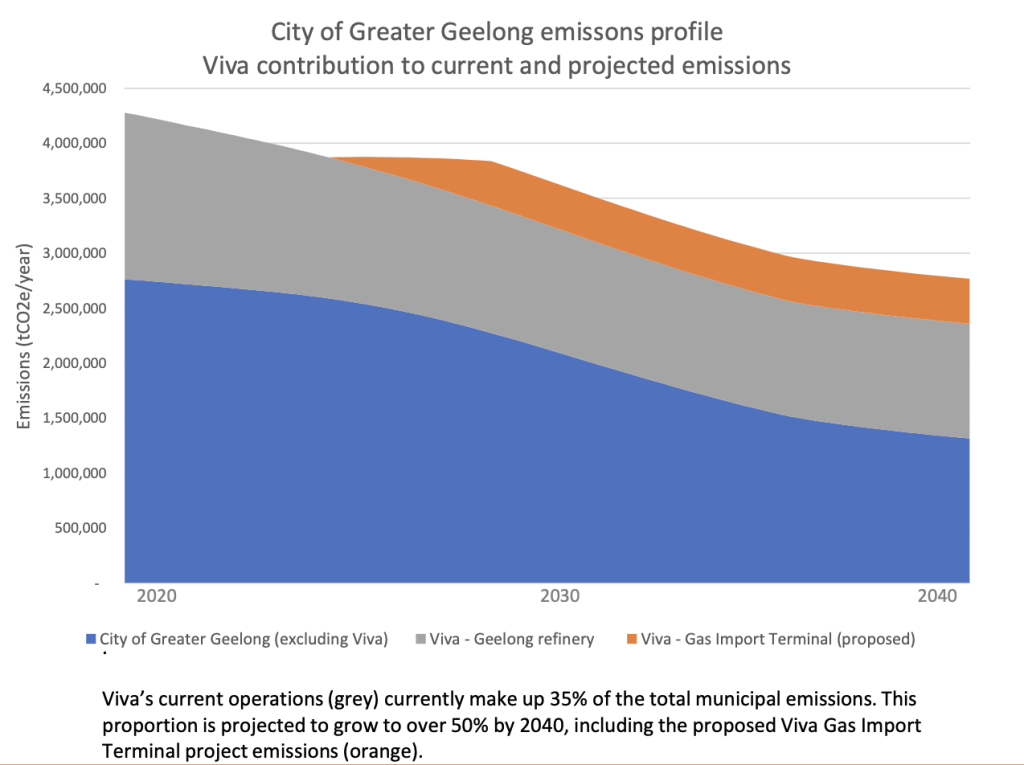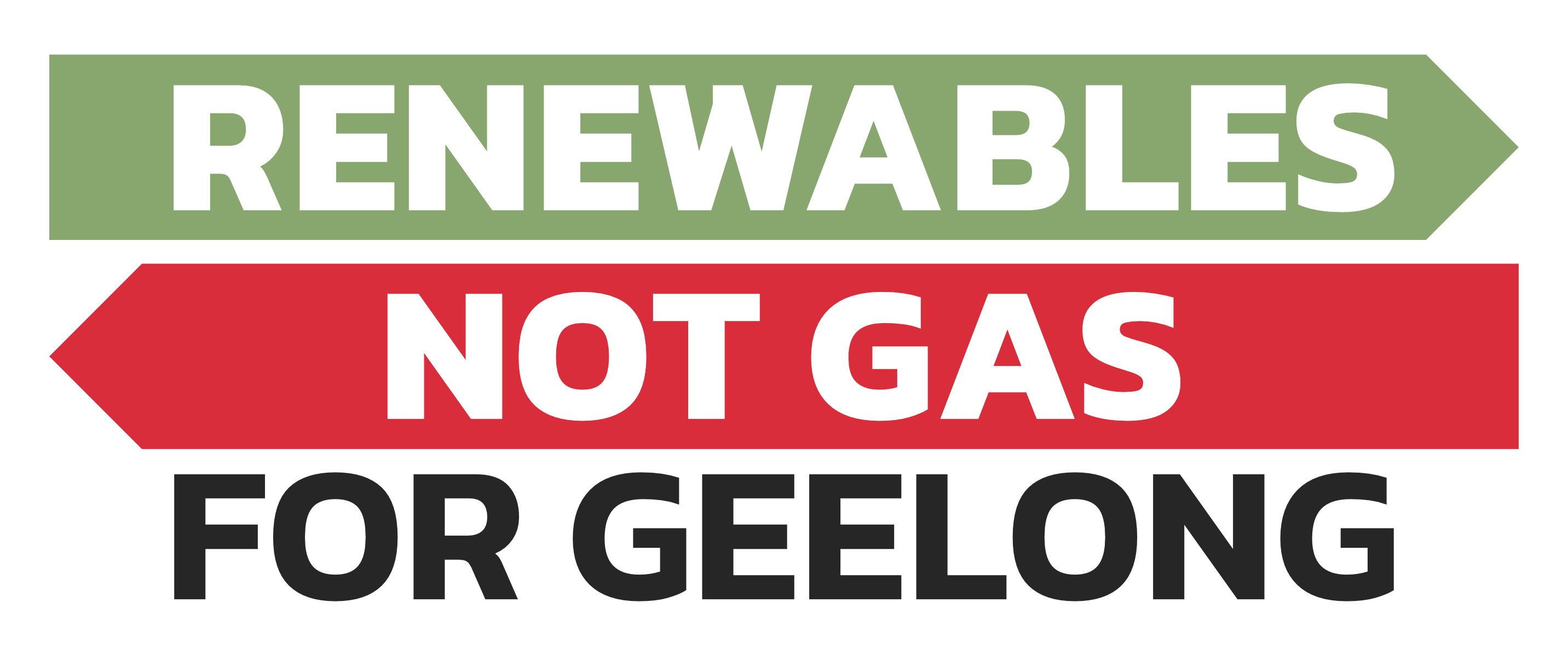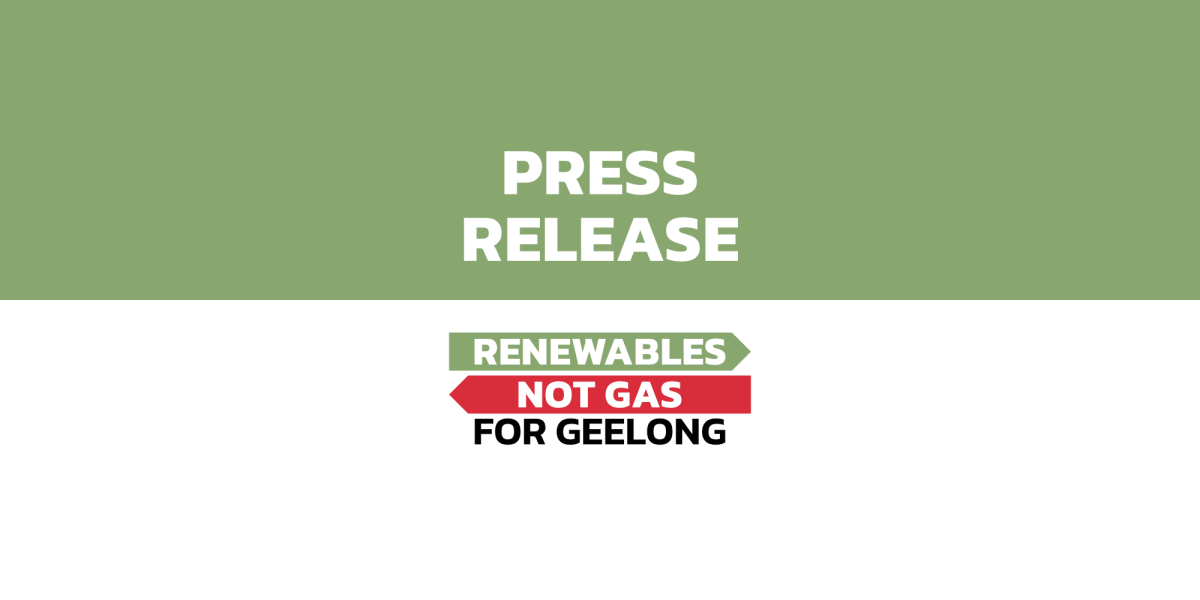Viva Energy’s proposed floating gas terminal in Geelong’s Corio Bay will be a significant and persistent source of emissions that will make it much harder for the City of Greater Geelong to reach its emissions targets, according to a report to be published today.
The report, titled Viva Energy Australia Gas Import Terminal Emissions Analysis, says Viva’s existing operations currently make up 35 percent of all the emissions from the City of Greater Geelong, which has a community-wide target of net-zero emissions by 2035.
The gas terminal project would increase Viva’s contribution to 52 percent of all emissions in the greater Geelong area by 2040.
The report, commissioned by ACF Community Geelong for the Geelong Renewables Not Gas (GRNG) campaign, was produced by Ironbark Sustainability, a leading consultancy on greenhouse gas emissions in the local government sector.
The report confirms earlier claims from Environment Victoria that Viva has tried to downplay the climate impact of the terminal by excluding the emissions from transporting gas to the site in LNG tankers. These represent a much larger volume of emissions than from the gas terminal’s operations or from existing sources of gas in Bass Strait.
The Ironbark report finds these transport emissions should be included to meet international standards, which makes the total emissions impact almost 12 times higher than Viva’s estimate.
Viva submitted an Environment Effects Statement (EES) as part of the planning assessment process for the project. Community feedback on the EES is due by 11 April. The City of Greater Geelong has recently published a submission on Viva’s project.
“The City of Greater Geelong is building a reputation for sustainability and is aiming to cut emissions to zero by 2035, but Viva Energy’s gas terminal project puts all that in jeopardy,” said Tony Gleeson, a spokesperson for Geelong Renewables Not Gas.
“Viva says it will use offsets to cancel the impact of a small part of their emissions, but carbon offsetting doesn’t reduce the carbon dioxide level in the air. It’s just an excuse to keep polluting.
“We already have too much carbon and the only solution is to reduce our use of fossil fuels and transition to cheaper, clean renewable energy as quickly as possible. That means rejecting this gas import terminal proposal from Viva Energy,” Mr Gleeson said.

Ironbark Sustainability has worked on greenhouse gas emissions with 260 different councils across Australia since 2004. The report Viva Energy Australia Gas Import Terminal Emissions Analysis can be accessed here: https://geelongrenewablesnotgas.org/wp-content/uploads/2022/03/Ironbark_Viva-Emissions-Analysis.pdf
ACF Community Geelong
ACF Community Geelong is part of a network of independently organised, volunteer-run groups in the Australian Conservation Foundation Community. It is leading the Geelong Renewables Not Gas campaign. For more information visit www.geelongrenewablesnotgas.org

